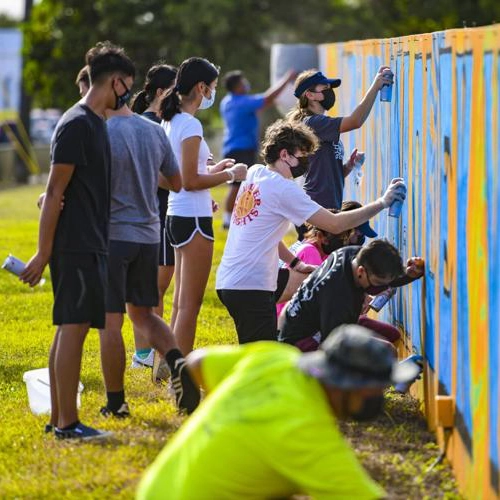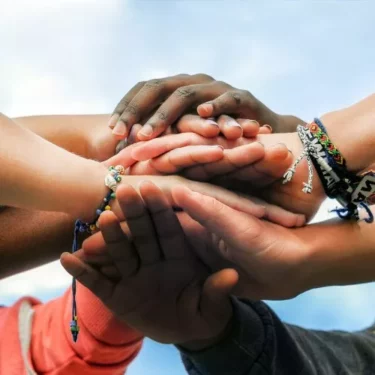Interview with Aja Ramos, LICSW, Senior Vice President, WestCare Pacific Islands
Anything is possible when heart meets hard work. No one knows that more than Aja Ramos of WestCare Pacific Islands, a National Council member organization operating in Guam and Palau. We spoke with Ramos about the important work her organization is doing, treatment in the Asian American and Pacific Islanders (AAPI) community and service delivery as a U.S. territory.
How is your organization helping people on your island thrive?
WestCare Pacific Islands embodies our mission of uplifting the human spirit in everything we do. Working from our heart space, our team provides critical services to help our communities support recovery and build resilience. We offer services in the areas of homelessness prevention and rapid rehousing, substance use and mental health treatment with youth and adults, employment services for veterans experiencing a housing crisis, youth substance use and teen pregnancy prevention. All of this helps to enhance the human services infrastructure on our islands.
Can you share a success story that speaks to your community impact?
When our island shut down due to the COVID-19 pandemic, our teams quickly rallied to support our clients, while also maintaining safety. Since we were serving veterans experiencing homelessness, we needed to find ways to ensure they were housed and that their basic needs were met. Our team used their creativity to place our veterans into emergency housing, forging new relationships with local hotels who were struggling due to the collapse of the tourism industry. They were able to negotiate their stays, which included meals and laundry.
Additionally, our Supportive Services for Veteran Families (SSVF) team partnered with local farmers to distribute fresh produce, along with other pantry items. Our team provided curbside delivery for both current and former clients who were struggling due to job loss. These efforts were recognized by the U.S. Department of Veterans Affairs SSVF as an exemplary practice during a time of global crisis.
What challenges do you face as a treatment provider in a U.S. territory?
I think people would be surprised to learn about the scarcity of resources available to U.S. territories, due to our political status. Although we are part of the U.S., we are not afforded the same levels of support from the federal government because we are not officially a “state.” In Guam, we only have one layer of government. The state, county and city structure does not exist on our islands. Because of this, our systems are lacking, making it more difficult to serve clients in a comprehensive fashion due to gaps in the continuum of care.
Homelessness, for example, is hard to address when you only have one shelter — or no shelter — on an entire island. Substance use is also hard to treat when there are only two providers and the wait time for help can last months. Across our services, we’re always thinking “outside the box” and trying to bridge the gaps to help facilitate recovery and resilience.
How is treatment delivery unique in the AAPI community?
There are cultural aspects that make treatment, mostly funded by federal dollars, unique. We are often asked to implement models of care or evidenced-based programs that have not been studied or tested with our population. We see this with many curriculum-based interventions where the concepts, language and value base are rooted in dominant cultural norms. These often either do not translate to the cultural values of our islands or are missing components that would strengthen treatment for our residents, such as inclusion of extended families, traditional healing and faith.
What do you enjoy most about the important work you’re doing?
We value and enjoy seeing the individuals and families we serve lead more fulfilling and stable lives. Being a tightknit community, it brings us great joy to bear witness to the impact of our services through the stories shared by our clients, their families and our partners.
What’s the most exciting thing you’re working on right now?
I would say the expansion of our work in our sister islands of the Commonwealth of the Northern Mariana Islands (CNMI). Our history and culture are inextricably linked; we rely on each other for resources and support. The movement of people seeking care for physical and mental health needs between our islands is fluid. Our goal is to establish treatment services in the CNMI that help meet the needs of the community and complement existing on-island capacities. Meeting with the people of the Northern Marianas, I was moved by the dedication, creativity and passion they bring when serving the people and I was inspired to be part of it in any small way.
The National Council’s membership consists of health care organizations and management entities across the U.S. that offer supports to millions of adults, children and families living with mental health and substance use challenges. Learn how to become a National Council member today!




